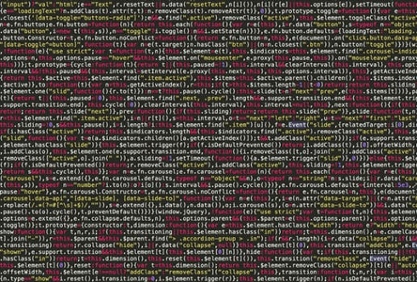I’m not majoring in computer science–or any technology-related subject, actually. I’m an English major. But I hear it can be tough to get a job as an English major, so I’m considering learning how to code in my spare time. I’m not sure yet, though, if I want to invest the time in learning how to code. So I have some questions for the experts: how much does it help a person, career-wise, to know how to program? And if I do want to learn how to program, which programming language should I start with?
Computers have become a way of life for most of us–and a way of work for a lot of us! There’s no doubt that learning how to code can help boost your employability, particularly if you’re considering focusing on a line of work that English majors might not traditionally target. Even if you choose to become a writer or a communications expert, it never hurts to understand the computer systems that you will almost certainly end up working with.
How do we know this? Because numbers don’t lie: programming job opportunities are growing 12% faster than the rest of the job market, and 4 of CNN’s recent top picks for jobs in the U.S. required coding. And, again, you don’t have to be programming computers yourself to enjoy a little boost from having a bit of a programming background. Writers work with “content management systems” online, advertisers work with websites, and all sorts of other pros come into close contact with programs that work to help them–and which can have issues that may be less frustrating and more understandable to someone with a bit of tech knowledge.
So what should you learn, and how should you learn it? Today, there are more ways than ever to learn how to code, and the developers behind a popular Coding Bootcamp Vancouver, Canada have streamlined the learning process. By having a hyper-focused course taught by industry professionals, learning how to code has never been quicker.
Most of these such instructional resources will give you a taste of a few different languages. This is because the principles of computer programming are at least as important as the specifics of a given language. Sure, you may find that familiarity with a given language will help you secure a more intense position later in your career. But in the early going, employers would likely rather know that you understand the logic that underlies the broad categories of computer programming than know that you have one language all but memorized. In this sense, learning a programming language isn’t really like learning a human language: focus on principles, not fluency, to start with.
Another reason not to get too tied up with the specifics of web development is that languages are always rising and falling popularity. Start studying a language now and you may graduate in time to find it has fallen out of favor.
This doesn’t mean you can’t focus a bit on one language once you’ve learned the basics. But it does mean you shouldn’t sweat too much about which one you choose. A popular language like Swift is a solid choice, but don’t be surprised if you find yourself using a different language every day later in your career–or if that language ends up being one that doesn’t even exist today!
Learning how to program computers isn’t always easy, but it can be immensely rewarding–and more than a little fun, too! Take courses, study up online, and learn the basics before diving into a language as a hobby. Be ready to bring your experience to bear with a new language if you end up as a computer programmer sometime down the line. And, above all, never stop learning!
“Talk is cheap. Show me the code.” — Linus Torvalds
Content Provided by Scholarship Media


